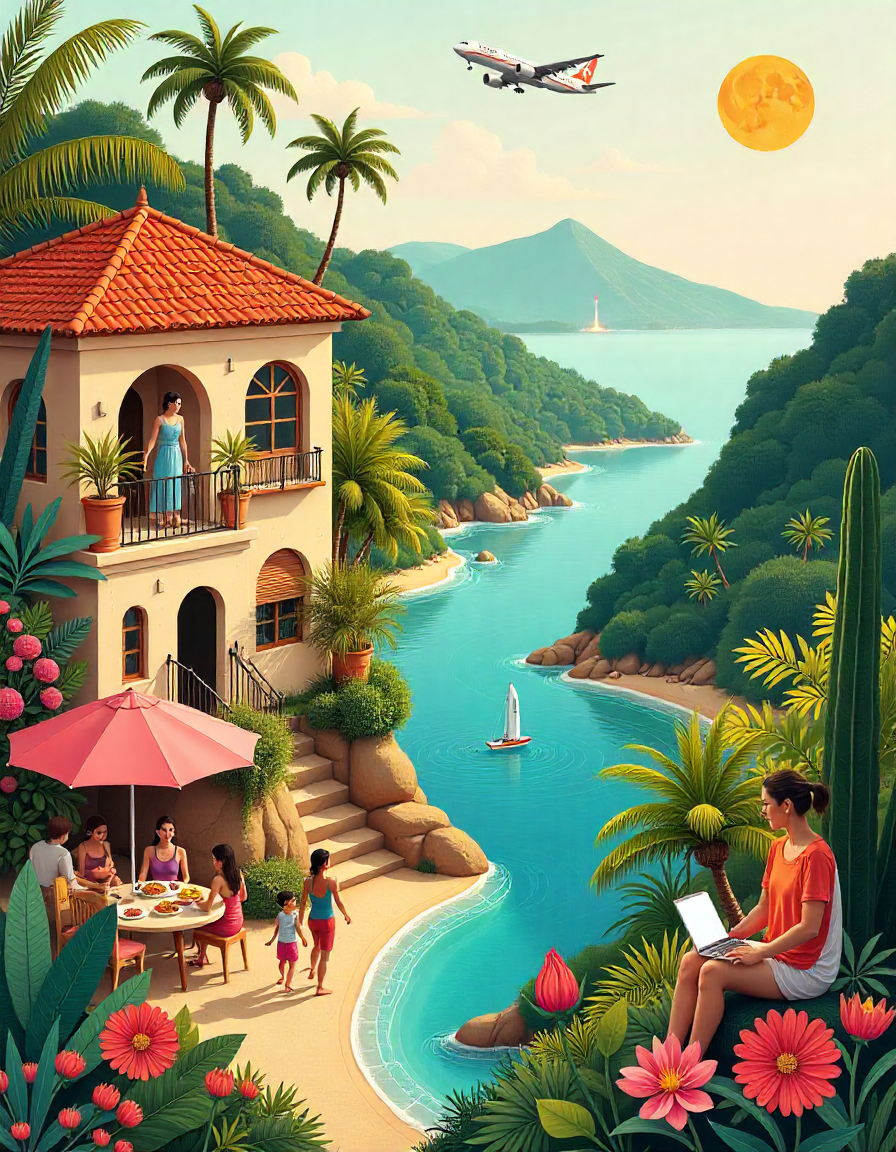Travel has always been about discovery—of places, of cultures, and often of oneself. Yet, in the past few decades, the meaning and methods of travel have shifted dramatically. It is no longer simply about moving from one location to another; instead, it is about crafting experiences that merge culture, environment, technology, and human connection. The new wave of travel trends highlights both opportunities and responsibilities for individuals, businesses, and entire communities.
The Growth of Experience-Driven Journeys
Travelers today are less focused on ticking landmarks off a checklist and more interested in immersive experiences. Instead of simply visiting Paris to take a photo near the Eiffel Tower, many prefer to learn French cooking in a local kitchen or attend a jazz performance in a hidden bar. This focus on experience means tourism industries are evolving to provide personalized, authentic interactions.
Airbnb and similar platforms helped ignite this movement by promoting stays in residential neighborhoods, where travelers can live like locals. Culinary tourism, craft workshops, and volunteer travel opportunities now attract those eager to return home with stories richer than souvenirs.
Sustainability in Travel
Awareness about climate change has transformed travel decisions. Sustainable travel is not a passing fad—it’s a growing global expectation. From eco-lodges in Costa Rica powered by renewable energy to train journeys in Europe that reduce carbon footprints compared to flights, travelers are more conscious of their choices.
Even major airlines have started exploring biofuels and carbon offset programs. Hotels, meanwhile, highlight their commitment to waste reduction, water conservation, and sustainable sourcing. For younger generations especially, how eco-friendly a travel option is can determine whether they book or look elsewhere.
Technology’s Role in Shaping Travel
Technology has altered the way people plan, book, and even experience travel. Apps provide real-time translations, AI-powered tools suggest itineraries, and augmented reality brings historical sites to life. Travelers no longer rely solely on guidebooks; digital platforms offer personalized recommendations based on interests and previous trips.
Beyond planning, technology shapes the actual experience. Virtual reality previews let travelers explore a destination before booking, while smart luggage tracks itself across airports. Facial recognition is speeding up customs procedures, and mobile payments simplify spending abroad. The fusion of travel and tech makes journeys smoother but also more interconnected.
The Rise of Slow Travel
While fast, budget travel once dominated, many are now embracing slow travel. This philosophy prioritizes depth over breadth—spending weeks or months in one place rather than rushing through multiple destinations. Slow travel allows for deeper cultural exchange, reduces stress, and can be more sustainable by cutting back on frequent flights.
Remote work opportunities have fueled this trend. With laptops and reliable Wi-Fi, professionals can live in Lisbon for three months, then move to Bali without compromising careers. This combination of work and exploration redefines the boundaries of traditional tourism.
Culinary Journeys as Cultural Windows
Food has become one of the most powerful motivators for travel. Culinary tourism ranges from Michelin-starred dining in Tokyo to street food adventures in Bangkok. Through flavors, travelers understand heritage, migration patterns, and cultural pride.
Cooking classes, food tours, and farm-to-table experiences are now integral to many itineraries. The rise of food-focused travel media has also encouraged destinations to showcase their gastronomy, knowing that dishes can become as iconic as monuments.
Adventure and Wellness Tourism
Adventure travel continues to grow, attracting thrill-seekers to mountain trails, scuba diving spots, and safari landscapes. Yet equally popular is wellness tourism, which offers yoga retreats in Bali, meditation in Himalayan monasteries, or thermal spa visits in Europe. For many, travel is a chance not just to see the world but to reconnect with themselves.
This blend of adventure and wellness highlights the diverse motivations behind travel. Some pursue adrenaline, while others seek restoration, but both stem from a desire to feel alive and renewed.
Travel as Cultural Exchange
More than sightseeing, travel increasingly represents an opportunity for cultural dialogue. Homestays, community-led tours, and educational exchanges encourage mutual respect and understanding. Travelers gain insights into local traditions, while hosts benefit economically and socially from meaningful interactions.
However, this exchange comes with responsibility. Respect for customs, sensitivity to cultural differences, and mindful photography are all vital. When done right, travel builds bridges rather than barriers.
The Impact of Global Challenges
Travel is not immune to global disruptions. The pandemic underscored how fragile the tourism industry can be, but it also encouraged innovation. Domestic tourism surged, contactless services grew, and digital health passports emerged. Economic and political changes, too, influence travel patterns, from currency fluctuations to visa policies.
Climate change poses perhaps the most profound long-term challenge. Rising sea levels threaten island destinations, while extreme weather alters seasonal travel norms. The future of travel must adapt to these realities, balancing human curiosity with environmental responsibility.
The Future of Travel
Looking ahead, several patterns emerge. Space tourism, once a science-fiction dream, is slowly becoming real, though still reserved for the wealthy. On Earth, hyperloop technology and next-generation aircraft may transform travel speed. Meanwhile, interest in indigenous tourism and heritage preservation will likely expand, allowing travelers to engage more meaningfully with local histories.
The blending of travel with everyday life will continue. Digital nomads represent only the beginning of a larger trend where travel is not an occasional luxury but an integrated lifestyle. For future generations, the idea of staying rooted in one city may feel increasingly rare.
Conclusion
Travel has never been static. Each era reshapes it in response to social values, technology, and global realities. Today, the focus is on experience, sustainability, cultural exchange, and personal enrichment. These shifts remind us that travel is less about escape and more about connection—to people, to cultures, and to the planet itself.
As the future unfolds, the greatest journeys may not be measured in miles but in meaning. For travelers and communities alike, embracing this philosophy ensures that travel remains a force for growth, empathy, and wonder.




